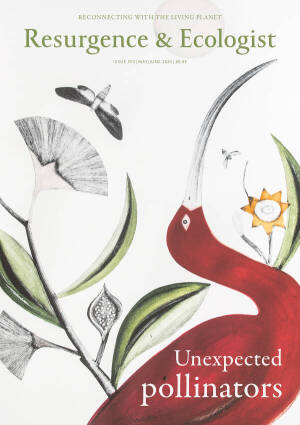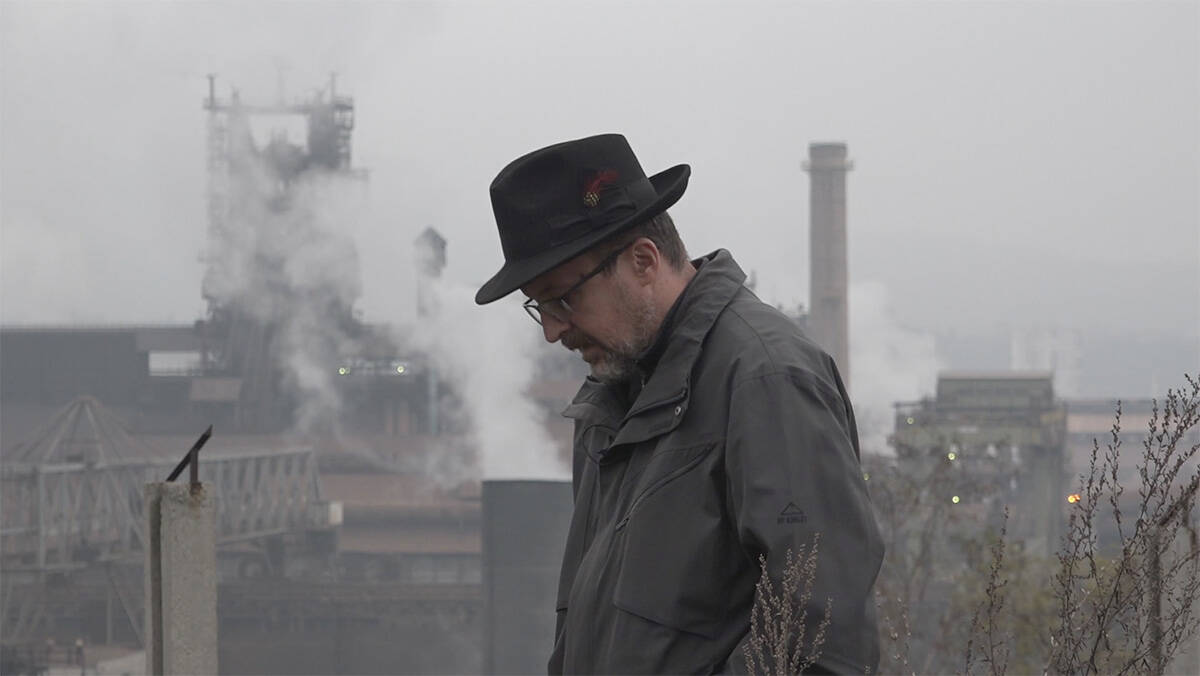Bosnia-Herzegovina has the highest number of deaths caused by air pollution in Europe. Globally, it ranks at number five for air pollution mortality rates. A 2017 UN factsheet on air quality in Bosnia-Herzegovina drew particular attention to Zenica – a small city in the centre of the Balkan nation with a population of approximately 100,000. “The ArcelorMittal steel plant is [one of] the largest polluters in the Zenica area,” the factsheet reported.
Built at the end of the 19th century, the steel plant became state property in Tito’s Yugoslavia (1945–1980), then production came to a halt during the Bosnian War (1992–1995). The world’s largest steelmaker, ArcelorMittal, acquired the plant in the early 2000s, with the government of Bosnia-Herzegovina holding onto a small share.
The reconstruction of post-war Bosnia saw “global capital move in, public property devalued, and international corporations allowed to buy up [state assets] for peanuts,” explains Zlatko Pranjić, a Bosnian film-maker from Sarajevo. “But little attention was paid to the environment or to the concerns of local citizens – corruption was rife and there wasn’t much regulation.”
ArcelorMittal failed to deliver on promises to reduce pollution from the chimneys and smokestacks of the Zenica steelworks, reports a 2017 article in The Guardian, which interviewed many citizens living in Zenica. One of those residents is Samir Lemeš, president of environmental group Eko Forum Zenica. “Lemeš is my childhood friend and Zenica is my hometown,” shares Pranjić, who left his war-torn homeland three decades ago, and ended up in London, where he now lives.
That Guardian article inspired the Bosnian director to return to Zenica with a camera to capture the pollution first-hand. He travelled there with Danish film-maker Nanna Frank Møller. “The pollution in Zenica was surreal and like nothing I had ever seen,” she says.
The two directors were greeted with enthusiasm and goodwill from citizens and government officials in Zenica. “But many locals believed pollution was unavoidable, and even necessary, for employment to continue at the Zenica steel plant,” says Pranjić.
“We met and listened to [resident] Samir Lemeš, and then built up a relationship with the locals. We continued filming for the next seven years,” Frank Møller explains. The result of that work is their documentary, The Sky Above Zenica, which won the Special Environmental Awareness Award at the 30th Sarajevo Film Festival in 2024.
Co-directed by Pranjić and Frank Møller, the observational documentary tells the story of a group of local citizens fighting for their basic human right to live in a clean and healthy environment, free from pollution. It wasn’t easy, though, as the opening scene demonstrates. It shows poisonous black smoke bellowing from the chimneys of the coking plant in Zenica. We are then given a brief lesson on the science of steelmaking.
To make steel in a blast furnace, coal is turned into coke, a porous substance that is nearly all carbon. The burning coke strips the oxygen from iron ore, leaving elemental metal. The raw iron is then converted into steel in a second furnace by adjusting its chemical composition. Around two-thirds of all steel produced globally is made in this way. Most steel plants, however, use blast furnace gas filters, which purify the gas produced during the conversion process of iron ore into usable metal.
“The smoke must be captured and purified, but the coking plant [in Zenica] does not have filters,” Lemeš explains early on in the documentary. The environmental activist also notes that, without filters, the coking plant in Zenica produced toxic substances into the atmosphere, like benzene and benzo[a]pyrene, both of which can cause cancer and leukaemia.
ArcelorMittal, we learn, was granted a government licence to operate in Zenica in 2010, on the condition that it would measure these toxic substances regularly. But the corporation neglected and delayed its environmental duties. We also learn that ArcelorMittal used better techniques to reduce emissions at its factories elsewhere in Europe – in Belgium, Italy and France. The Sky Above Zenica follows Eko Forum’s environmental campaign, led by Lemeš, to get the world’s largest steel producer to comply with adequate safety standards. “The corporation was given a new environment permit every few years, but did not fulfil those measures,” says Pranjić.
Finally, in 2022, with added pressure coming from Eko Forum, ArcelorMittal began tracking and testing carcinogenic pollutants around its coking plant in Zenica. The testing showed dangerous chemicals exceeding the legal norms by 50 to 250 times. The analysis of toxins in the river Bosna locally, meanwhile, indicated polycyclic aromatic hydrocarbons levels 910 times higher than the legal norm.
The documentary also tells another story, running parallel to this main narrative. This concerns the controversy surrounding the construction of a new heat plant, Toplana Zenica. Most of the funds to build it came from the European Bank for Reconstruction and Development (EBRD). Construction began in 2020 and was completed two years later. ArcelorMittal Zenica is the main shareholder, owning a 50% stake. The other main shareholders are the city of Zenica, KPA Unicon and Finnfund.
The EBRD included Toplana Zenica as part of its so-called Green City Action Plans. Eko Forum, though, drew attention to a bizarre irony of the alleged new green heating plant. Since the ArcelorMittal plant was to become the main fuel source for the new heat plant, pollution was unavoidable. “Building Toplana Zenica eliminated 200,000 tons of coal that was used for the old heating plant. But it was replaced with the dirty gases from the coking plant,” Pranjić explains.
In March 2024, as The Sky Above Zenica was going into the production phase, ArcelorMittal announced that its coking plant in Zenica would permanently close. “This decision was made for economic and environmental reasons,” an official statement from the steel producer said. “The closure of the coking plant has resulted in an 80% decrease in diffuse emissions from the plant in Zenica.”
“Now that the coking plant has been destroyed, Toplana Zenica heat plant will use [better technology],” says Pranjić. “They still use this coke in production. But instead of producing coke in Zenica, the corporation now bring it from elsewhere, but it’s purified, which makes a huge difference.”
There have been some attempts to bring ArcelorMittal to court. But none have been successful. A lawsuit was filed by Eko Forum Zenica, against ArcelorMittal Zenica, for endangering the environment with devices, but this was rejected by the Zenica Cantonal Prosecutor’s Office in 2020, due to insufficient evidence. The Hasanbašić family from Zenica also pursued a private lawsuit against ArcelorMittal, seeking compensation for health and property, but the family lost, due to the inability to substantiate the extent of the damage inflicted.
“We did film some court proceedings, but they didn’t make it into the final film,” Pranjić explains. “But we never heard locals talking about compensation being their goal. They just wanted their environment to improve.” According to a 2023 Greenpeace report, Zenica is the sixth most polluted city in Europe. “There is still a lot of work to be done for Eko Forum and for citizens of Zenica,” concludes Pranjić.
Frank Møller hopes The Sky Above Zenica, at the very least, will engage an international audience in questions related to the environment. “We want viewers to reflect on what they have seen in this film,” the director shares. “Then they might start asking: why do we have a planet that is breaking down, and why do we have some societies that are so poor and other societies that are so rich? To answer these questions, we have to take a stand as human beings.”
The Sky Above Zenica is a documentary film produced by Magic Hour Films in Denmark in co-production with HBO Europe s.r.o. and Realstage, Bosnia, and supported by the Danish Film Institute and Ministry of Culture, Canton Sarajevo.








